5. A Prophet
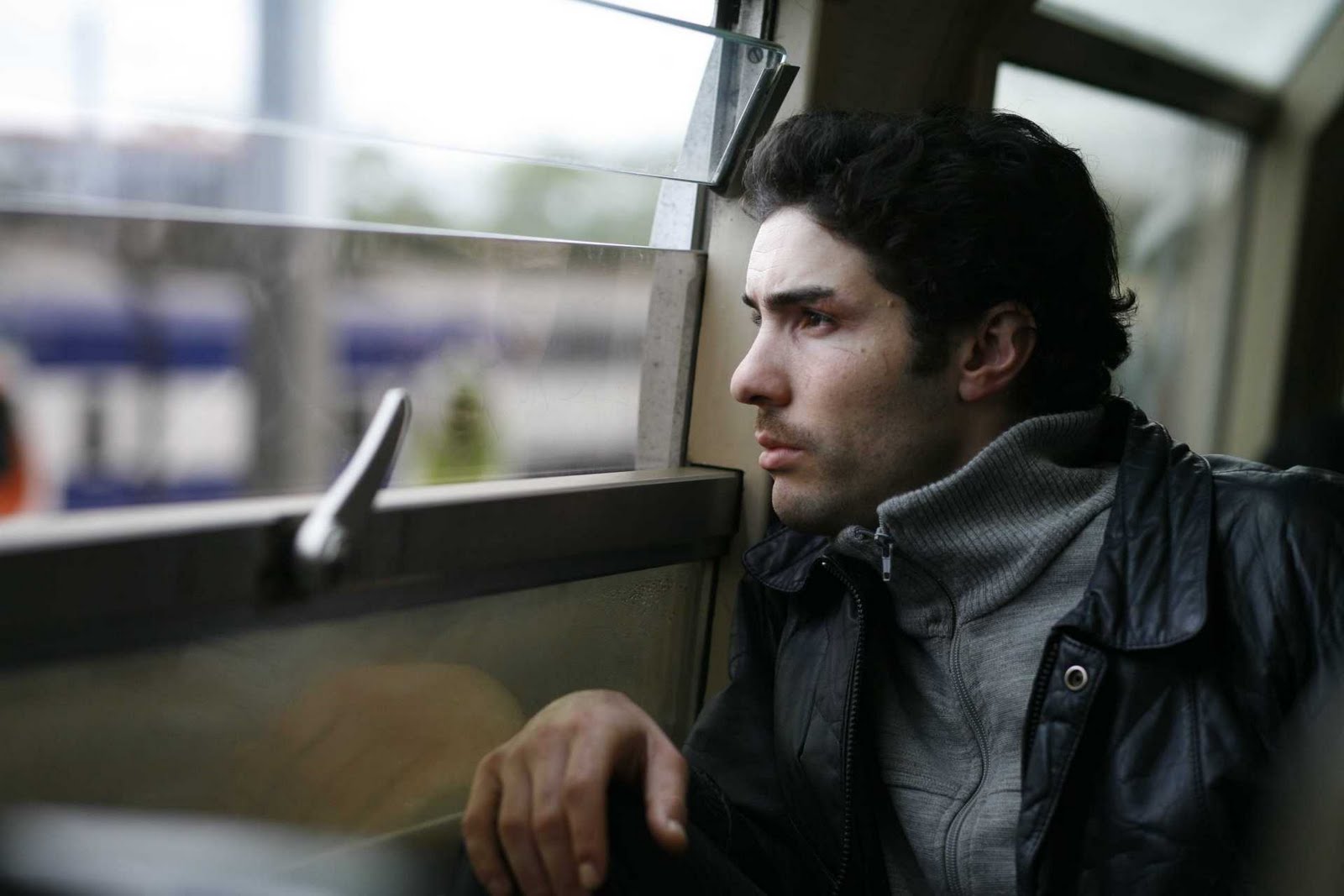
Unlike the other characters on this list, the protagonist of this movie doesn’t want power, but is forced to acquire it as a means of survival.
Malik is a young man who’s serving six years in a French prison, for presumably attacking a cop with a knife. He’s rather passive and shy, not the personality one would expect in a juvenile criminal.
He’s is trying to figure out how to survive until he meets Cesar, the prison’s kingpin, who commands him to kill another prisoner who’s about to testify in a big trial. From that point, the protagonist understands that in order to stay alive in hell, he’ll need to get connections and a few friends in and out of the prison. As Malik becomes more powerful, he also gets more violent and, of course, richer.
The contrast is clear between the insecure innocent Malik in the beginning of the film, and the ruthless leader assassin at the end of the movie. The transition between the two is natural and believable. The first act of “A Prophet” is the more intense one; the way that Malik’s journey is set up is both frightening and crude, as he’s forced to lose all sense of morality.
The cinematography is bleak and realistic; it powers the film’s level of intensity by portraying the story through a very clean and simple aesthetic. That way, the events depicted are more rough and brutal, two words that describe the film’s tone perfectly.
4. There Will Be Blood
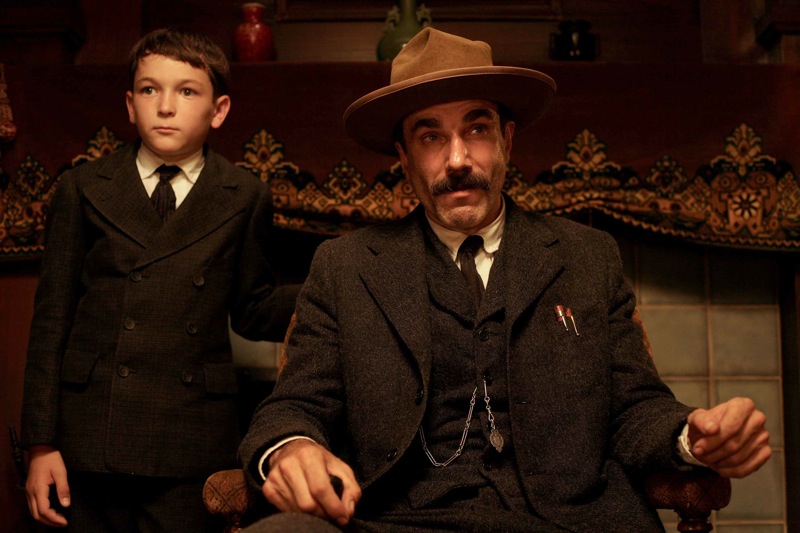
Paul Thomas Anderson’s masterpiece is all about greed for the power that money provides. Daniel Plainview pursues this goal by looking for oil wells and drilling the hell out of them.
He starts mining for minerals in small individual enterprises. Little by little, Plainview founds a drilling business with a few men; then, he’s able to begin a serious oil company. Until that point, Plainview remains a decent man who seems to love his adopted son, H.W.
After finding a widely profitable oil well, Plainview gets consumed by the stress of running a business of that magnitude. He seems to struggle but is able to cope, right up until his son goes deaf after a drilling accident. Plainview gives more importance to his current work, so he sends H.W. away.
Plainview gets paranoid. He doesn’t trust anyone, and he thinks everybody wants to interfere with his endeavors. As he says himself, “There are times when I… I look at people and I see nothing worth liking. I want to earn enough money so I can get away from everyone.”
After he becomes a huge oil tycoon, Plainview sees an enemy in everybody. His never-ending quest for money dehumanizes him. Plainview becomes isolated from the world, which makes it easier for him to commit outrageous crimes; he doesn’t consider his victims and adversaries as equals. The protagonist sees himself above everyone and everything.
3. The Wolf of Wall Street
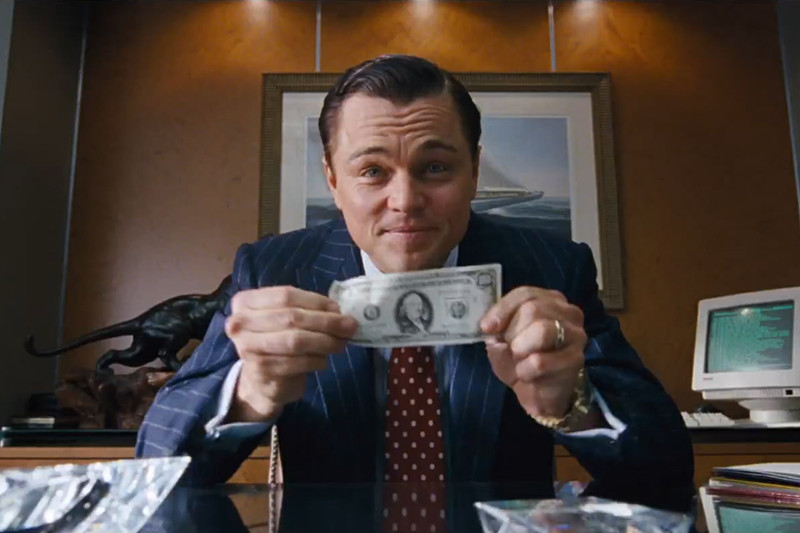
Before being attacked by a bear, Leonardo DiCaprio had high hopes of becoming rich by learning the craft of stockbroking. He used his silver tongue to achieve said goal, and things went uphill after he started his own company, until they didn’t.
After becoming insanely rich, it didn’t took long for him to abandon his wife for a new squeeze, but who could blame him for choosing Margot Robbie over every other woman? However, he gained a fortune by conning his clients and committing other various schemes and felonies.
At first, he wants to get to the top honestly, but after having a chat with his first boss (a brilliant cameo from Matthew McConaughey), Leo’s character realizes that the only way of surviving in that treacherous world is by cheating and getting high.
He is corrupted completely by his extreme greed. His thirst for luxury is never satiated as he loses all sense of morality, and he also becomes extremely individualistic. The movie is smart at showing his two children for as long as he cared for them, meaning almost not at all.
The film is excellent because it displays every step on his way to power, and then his decline and imprisonment. The protagonist is fully fleshed out as we see him evolve through all these stages.
2. Downfall
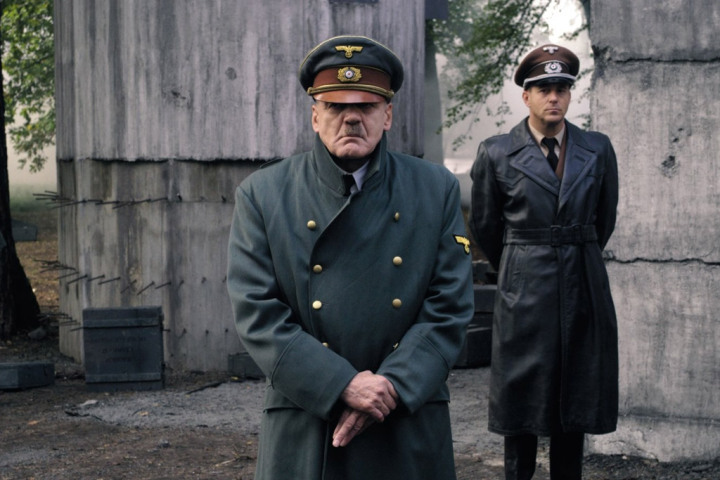
As the most well-known member of the “20th Century Crazy Bitches Club” (along with Joseph Stalin and Mao Zedong), Adolf Hitler lived his final days in Berlin before being killed by Adolf Hitler.
The movie depicts a delusional Uncle Adolf, quite different from the fearless military leader most people think he was. His squad cornered in the Berlin bunker are divided in two groups: the fanatic idiots who love the Führer, and the guys who think he’s crazy but are forced to praise him due to peer pressure.
Hitler was estranged from reality, making wild assumptions, giving nonsensical orders, and throwing several tantrums throughout the day. He created an environment in which he was loved and unquestioned by everyone. He believed he was invincible, to the point where he couldn’t actually understand that his side was losing the war. Thus, his behavior was erratic and melancholic.
The film also shows us how other Nazis couldn’t bear the fact that the Soviets were brutally defeating them. In a great scene, we see a group of the few remaining members of the Nazi secret police executing alleged “traitors” (more like random people they found), just when the communists were flanking Berlin. These men preferred to enjoy their last moments as a totalitarian authority instead of helping to win the battle.
“Downfall” is outstanding as it depicts the real clueless Hitler, instead of the clichéd mastermind we’re accustomed to seeing. The fact that Bruno Ganz didn’t win all the awards for his incredible performance is outrageous. Although we must admit that giving an Oscar to a guy for playing Hitler would be like losing World War II altogether.
1. The Godfather Trilogy
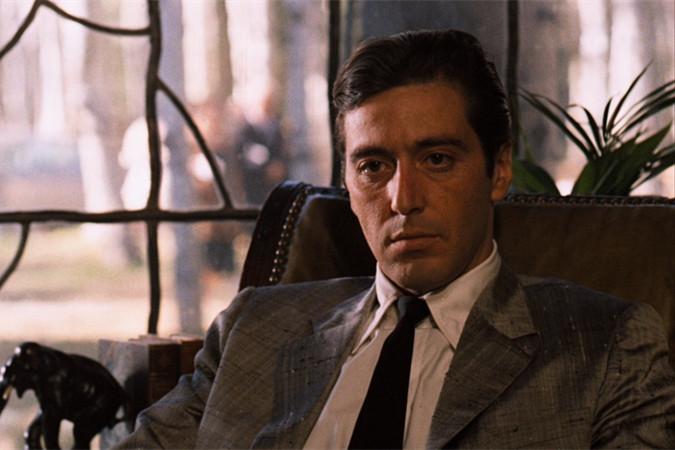
Michael Corleone’s rise and fall was amazingly depicted throughout this franchise. Although the third one should make Francis Ford Coppola cry out of shame, the first two are considered unforgettable masterpieces.
These three films represent one of the best character studies of all time. We can see how Michael’s spirit is corrupted by the pressure of keeping his family’s legacy alive.
He takes life-threatening risks, loses family members, and is betrayed by his own people. After his brother’s death, Michael becomes a full kingpin, assassinates a bunch of mobsters, and is even capable of killing his own traitorous brother.
In the third film, he tries to hold onto power with everything he’s got, putting his family at risk again, and getting his beloved daughter killed. Finally, he dies alone and miserable in Italy.
Al Pacino’s performance makes this transition look real. His character starts off as an average soldier, and slowly he gets pushed by inconvenient events into a merciless murderer with no moral compass. Every gesture Pacino makes builds tension that is released every time he avenges somebody or eliminates a family enemy.
So, in conclusion, I’ll say that having too much power is like eating a whole pizza on a crowded subway train. You may enjoy it at first, but the situation becomes annoying when everybody passionately craves a slice.
Author Bio: Juan studies philosophy. He love films and music and plans to go to film school with his cat.